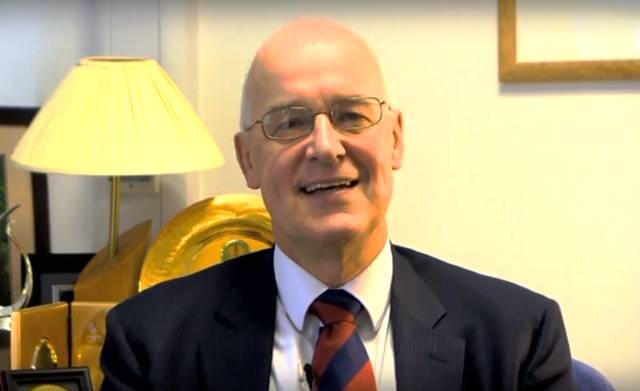BDS actions hinder the flow of knowledge and global collaboration, Hamilton said.
By: Lea Speyer/The Algemeiner
The president of New York University (NYU) had some harsh words for the Boycott, Divestment and Sanctions (BDS) movement, slamming the global initiative in a recent interview as “an affront to academic freedom.”
Speaking to the student newspaper NYU Local on a host of campus issues, Andrew Hamilton said the anti-Israel movement aims to “restrict…the flow of students or faculty from universities anywhere” in engaging with Israeli institutions.
“[If] we are going to defend what we do in research, in areas of political science, in areas of gun violence, in areas of reproductive health, if we’re going to defend that to our own government, we will certainly defend that when it comes to our engagement with other governments, and so for me that speaks to BDS,” he said.
Hamilton’s comments are in line with the position of the school’s Board of Trustees, which has come under continual pressure by anti-Israel activists to cut all ties with the Jewish state.
NYU has a long history of BDS activity, led mainly by the school’s Students for Justice in Palestine (SJP) chapter, which describes itself as an “anti-Zionist group” working to end the “Israeli system of Apartheid and discrimination against the indigenous Palestinian population.”
Last year, faculty and students formed the “NYU Out of Occupied Palestine” coalition, which calls on the university to divest from “corporations that profit from the occupation of Palestine,” close the NYU Tel Aviv campus and pledge support for the academic boycott of Israeli institutions.
In June, a NYU’s Graduate Student Union (GSOC) motion in support of BDS was declared void of “force or effect” by its parent body, the United Auto Workers International (UAW), on the grounds that it violated the organization’s constitutional bylaws. As a result, UAW-affiliated unions at over 15 universities were prohibited from supporting BDS.
